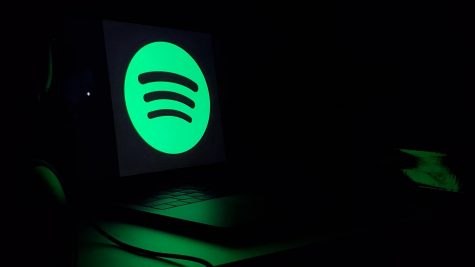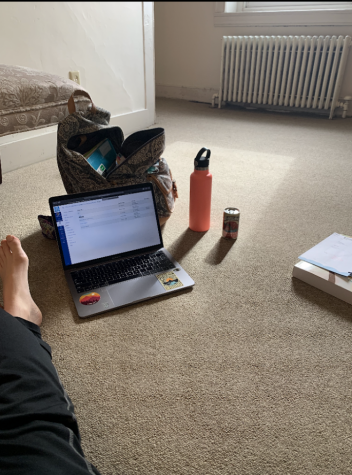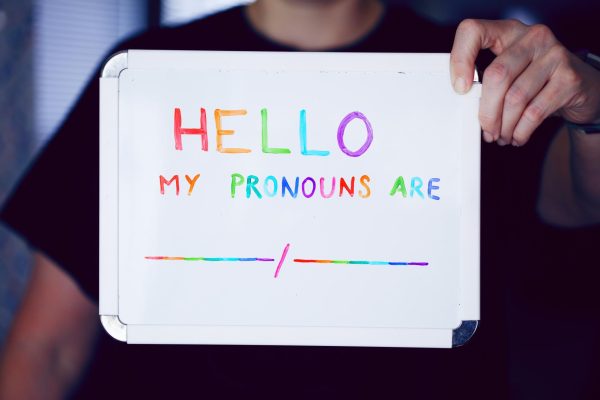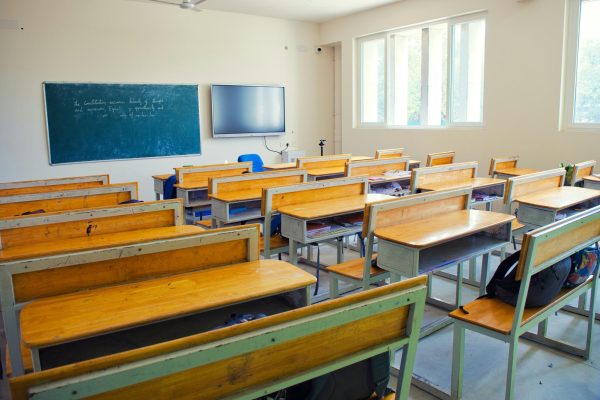My COVID-19 Scare
Since Moravain decided to resume in-person classes for the fall semester, the thought of contracting COVID-19 has been at the forefront of my thoughts almost daily.
Being a commuter, I am absolutely terrified of bringing the virus home to my family — as well as having to deal with the mental ramifications of being stuck in isolation while recovering from the virus and having no in-person contact.
I am afraid of these things even though I always wear my mask out in public, follow all the guidelines of the “Protect the Pack” pledge, and have only been in contact with people who also attend Moravian. So in my mind I was being safe from all types of sicknesses, including COVID-19.
Never in my wildest dreams did I think I would be dealing with Moravian’s COVID-19 procedures so early in the semester due to a simple sinus infection.
It all started last Tuesday when I found myself falling asleep at an unusually early time. When I woke up the next morning, I had a sore throat, chills, and congestion.
While I was convinced I just had a cold, I still reported the symptoms on the daily COVID survey. However, after evaluating me, the Health Center sent me to the nearest St. Luke’s testing center for a COVID test.
The 24 hours I waited for the test results was unbelievably stressful. I couldn’t sleep at all that night because I was so anxious, which — as you could imagine — did not help my symptoms at all.
Early in the afternoon on Thursday, the wait was over when the word “negative” popped up on my St. Luke’s My Chart app.
I was absolutely relieved, but still concerned since I wasn’t feeling too well. That Friday, I decided to go to my primary doctor, who diagnosed me with a sinus and ear infection, prescribed antibiotics, and told me to rest.
While glad that I was just sick with a simple sinus infection, I was still anxious over the thought of contracting COVID-19 so easily, especially being on a college campus.
As predicted by scientists all over the country, there has been a recent increase of younger age groups contracting COVID-19.
According to the CDC, the 18-29 age group makes up 23.5% of the United States’ COVID cases since the start of the pandemic back in March. While it has not been confirmed or denied that cases have increased in these age groups due to schools reopening, most colleges and universities are seeing cases on their campuses.
For example, Kutztown University has recorded 303 confirmed cases since its reopening on August 24. While Moravian does not keep a running record of all their cases, as of September 24 there have been 8 active cases listed on its COVID-19 dashboard.
Additionally, new research conducted by Boston University shows that COVID-19 has increased depression and anxiety rates in college-students, which is adding new barriers to mental health services, as 60% of students surveyed cited difficulties to obtaining services during the pandemic.
While I have appreciated the precautions Moravian is taking to protect its community from COVID-19, nothing is foolproof — especially in the current societal climate where there are varying opinions towards the virus.
However, some of the precautions in place are flawed to begin with, even without any other factors.
The daily COVID survey that is mandated for all members of Moravian’s community to complete everyday is useful. It also has its flaws, however.
There is no option to report a negative result if you are required to get tested or even an option of self-quarantining due to sickness other than COVID. Additionally, it makes the responder evaluate their own symptoms to see if they are COVID related or not, which defeats the purpose of completing the survey, as the Health Center should be making that determination.
The recent “laxing” of restrictions on campus has been particularly concerning to me as well, as there has been a steady increase in cases in the residences halls; more events have also been taking place on campus. While the College cites mental health reasons for making this change, the email announcing the change did not encourage students to use the Counseling Center services or take advantage of other mental health resources on campus.
Additionally, the tradition of Family Day occurred last weekend, which brought hundreds of people from numerous different areas to Moravian’s campus.
The College again cited mental health reasons as to why the event occurred. While Family Day was reduced to only 250 people for only two time slots, Moravian still openly welcomed a population of people to campus who came from different areas, not knowing if they were exposed to COVID. Yet, the College has recommended that residential students not leave campus due to possible risk of contracting the virus and bringing it back to the Moravian community.
While Moravian might have some issues with some of their COVID guidelines, as a whole it has been consistent and proactive compared to other schools around the country.
I also believe that the “Protect the Pack” initiative helped to make sure the community was aware of the guidelines and the repercussions for breaking these guidelines, which I believe helped students and staff take the guidelines more seriously, as they know if they are violated, we will be completely online again — which no one wants to do for another semester.
However, I still believe that Moravian should rethink some of the guidelines and precedents it puts out to the community as they can be confusing.
Having to report my recent symptoms and quarantine updates myself on the daily survey was extremely confusing as I could not accurately describe my situation. Additionally, considering Boston University’s study about mental health during COVID-19, I believe there should be more resources known and available to students on campus.
As a whole, being a smaller school helps with being able to manage its community better, and I hope that will be in Moravian’s favor when it comes to preventing any major outbreak on campus.













Esso Terric • Sep 25, 2020 at 2:25 am
Another excellent story, Kaitlyn! BRAVO!!!